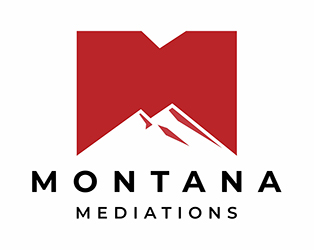Why Mediate?
Mediation has become the wildly popular alternative to going to court because mediation is:
- Cheaper – far, far cheaper than hiring lawyers and going to endless court appearances. Mediation usually involves paying a mediator for a half or full day’s work, which is usually only a few hundred dollars; by contrast, legal fees can be tens or hundreds of thousands of dollars;
- No Attorneys Required – parties can, and often do, mediate their disputes without hiring attorneys. (This is why mediation is so much cheaper!) And let’s be honest: Most people don’t like involving attorneys if they can avoid it. Mediation is the solution. (Attorneys can be involved in mediation of the parties agree to it).
- Quicker – most mediations last a few hours instead of the months or years that court cases take. This is an enormous advantage of mediation over court actions;
- Voluntary – either party can stop mediation at any time;
- Predictable – because mediation is purely voluntary, the parties know what they’re getting in the final resolution of the case because they get to approve it. This is not true in court actions, where judges and juries can come to very unpredictable conclusions.
- Flexible – the parties in mediation can creatively craft the resolution of a mediated case. This is not so with court cases because judges are often constrained by law to come to certain conclusions and impose non-discretionary judgments. For example, an apology can be one of the outcomes of a mediation, but a judge cannot order it in a court case. Another flexibility of mediation over court actions is that judges are often required by law to issue “winner takes all” judgements, but mediation can result in fairer outcomes.
- Confidential – the discussions and documents in mediation are confidential under Montana law. This is not so in court actions in which court files are usually publicly available. Any dispute involving sensitive information is well suited for mediation.
- Exchange of Documents and Other Information – Mediation, which is confidential, allows the sides to candidly turn over key documents and have a “no BS” discussion of the dispute because both sides know that their honesty cannot be used against them in a court case. In fact, when a side has a good case, he or she often wants to hand over the favorable evidence in a mediation instead of waiting for months to file a motion in court. A mediation, even if unsuccessful, is a great way for each side to present their cases to the other side, which often leads to settlement of the court case.
- Mediators are truly neutral – a mediator’s only agenda is to help the parties resolve the case. An ethical mediator will agree to never represent either party (Montana Mediations does so) which means an ethical mediator will never be in a position to use the confidential information in a mediation to later take sides and represent one of the parties.
- Amicable – because mediation is so much cheaper, quicker, and often doesn’t involve attorneys, the parties find that it’s much easier to amicably resolve the dispute and get on with life. Attorneys in court actions often fight it out as adversaries and this carries over to the parties’ views of the other side. In contrast, mediators work toward making sure both parties can live with the outcome so they can put the dispute behind them.
- Mediation can be ordered by a court – Montana law allows judges to refer some kinds of cases to mediation. It’s better to start off with mediation than go through an expensive and time-consuming court action only to have the judge refer the case to mediation. It’s better to start off with mediation.
- Judges like mediation – with a full case load, judges really appreciate it when parties resolve a dispute by mediation, which means the case never clogged up the judge’s docket. Judges’ fondness of mediation means that if a case has been filed, the party suggesting mediation is often viewed favorably by the judge as a reasonable person. If the other party refuses to mediate, that other party is not pleasing the judge. Therefore, there is no downside in suggesting mediation in a court action.
Why Mediate?
Mediation has become the wildly popular alternative to going to court because mediation is:
- Cheaper – far, far cheaper than hiring lawyers and going to endless court appearances. Mediation usually involves paying a mediator for a half or full day’s work, which is usually only a few hundred dollars; by contrast, legal fees can be tens or hundreds of thousands of dollars;
- No Attorneys Required – parties can, and often do, mediate their disputes without hiring attorneys. (This is why mediation is so much cheaper!) And let’s be honest: Most people don’t like involving attorneys if they can avoid it. Mediation is the solution. (Attorneys can be involved in mediation of the parties agree to it).
- Quicker – most mediations last a few hours instead of the months or years that court cases take. This is an enormous advantage of mediation over court actions;
- Voluntary – either party can stop mediation at any time;
- Predictable – because mediation is purely voluntary, the parties know what they’re getting in the final resolution of the case because they get to approve it. This is not true in court actions, where judges and juries can come to very unpredictable conclusions.
- Flexible – the parties in mediation can creatively craft the resolution of a mediated case. This is not so with court cases because judges are often constrained by law to come to certain conclusions and impose non-discretionary judgments. For example, an apology can be one of the outcomes of a mediation, but a judge cannot order it in a court case. Another flexibility of mediation over court actions is that judges are often required by law to issue “winner takes all” judgements, but mediation can result in fairer outcomes.
- Confidential – the discussions and documents in mediation are confidential under Montana law. This is not so in court actions in which court files are usually publicly available. Any dispute involving sensitive information is well suited for mediation.
- Exchange of Documents and Other Information – Mediation, which is confidential, allows the sides to candidly turn over key documents and have a “no BS” discussion of the dispute because both sides know that their honesty cannot be used against them in a court case. In fact, when a side has a good case, he or she often wants to hand over the favorable evidence in a mediation instead of waiting for months to file a motion in court. A mediation, even if unsuccessful, is a great way for each side to present their cases to the other side, which often leads to settlement of the court case.
- Mediators are truly neutral – a mediator’s only agenda is to help the parties resolve the case. An ethical mediator will agree to never represent either party (Montana Mediations does so) which means an ethical mediator will never be in a position to use the confidential information in a mediation to later take sides and represent one of the parties.
- Amicable – because mediation is so much cheaper, quicker, and often doesn’t involve attorneys, the parties find that it’s much easier to amicably resolve the dispute and get on with life. Attorneys in court actions often fight it out as adversaries and this carries over to the parties’ views of the other side. In contrast, mediators work toward making sure both parties can live with the outcome so they can put the dispute behind them.
- Mediation can be ordered by a court – Montana law allows judges to refer some kinds of cases to mediation. It’s better to start off with mediation than go through an expensive and time-consuming court action only to have the judge refer the case to mediation. It’s better to start off with mediation.
- Judges like mediation – with a full case load, judges really appreciate it when parties resolve a dispute by mediation, which means the case never clogged up the judge’s docket. Judges’ fondness of mediation means that if a case has been filed, the party suggesting mediation is often viewed favorably by the judge as a reasonable person. If the other party refuses to mediate, that other party is not pleasing the judge. Therefore, there is no downside in suggesting mediation in a court action.





